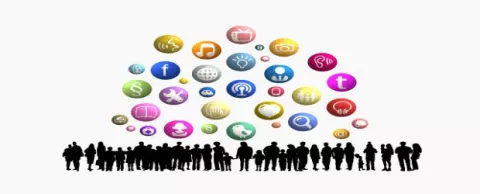
Imagine walking down the street in your home city and having a direct conversation with it. Where should I eat tonight? Is that concert sold out or can I still buy tickets? Can you make a reservation at that new restaurant I’ve been wanting to try?
This type of conversation may seem of the science fictional variety, something out of an Academy Award-winning film like “Her,” where the protagonist falls in love with his new operating system. But in the northern Italian region of Lombardy, the historic city of Mantua has transformed this concept into a reality. Below, you’ll read more about the advanced technologies Mantua has adopted to become the first “phygital” Italian city, connecting the need to live physically with a city and the help of a digital assistant who can make that possible.— Philippe Leonard
The ultimate city guide
Seen as the “smart city evolution,” Mantua has dubbed itself Italy’s first “Phygital City,” connecting physical and digital experiences residents can have. So what does this mean exactly? The 2016 Italian Capital of Culture, with the help of fabbricadigitale (the Italian IT company behind Telecom Italia’s digital experience at the Expo 2015), is working with big data-based, advanced machine learning technologies that can analyse smart city information in real time. Using real time multi-dimension city mapping, an AI engine can connect visitors and residents with the city, offering everything from shopping suggestions in the area (designed around that person’s preferences) to checking event times and seat availability for local happenings.
An app to the city
It all starts with an app. With the “Phygital Commerce” function on a smartphone, residents will be able to actively communicate with the city for the “best life experience,” since this type of technology can analyse preferences and anticipate desires, offering information that perfectly matches a person’s tastes and consumption style. Not only will the app offer useful information such as traffic alerts and assisted guides to the city, it can also provide 3D and 360-degree videos; augmented reality functions; and assistance in more quotidian activities, from avoiding queues to making reservations.
This type of revolutionary digital project is just one component of Mantua’s plan to make the quality of life for citizens and visitors the best possible. The city will also grow in a sustainable way thanks to the “Regenerate Mantua” project, an urban planning and architecture initiative redeveloping the system of underused and abandoned areas near the waterfront, building a new series of public spaces connecting Mantua’s urban and natural offerings.



